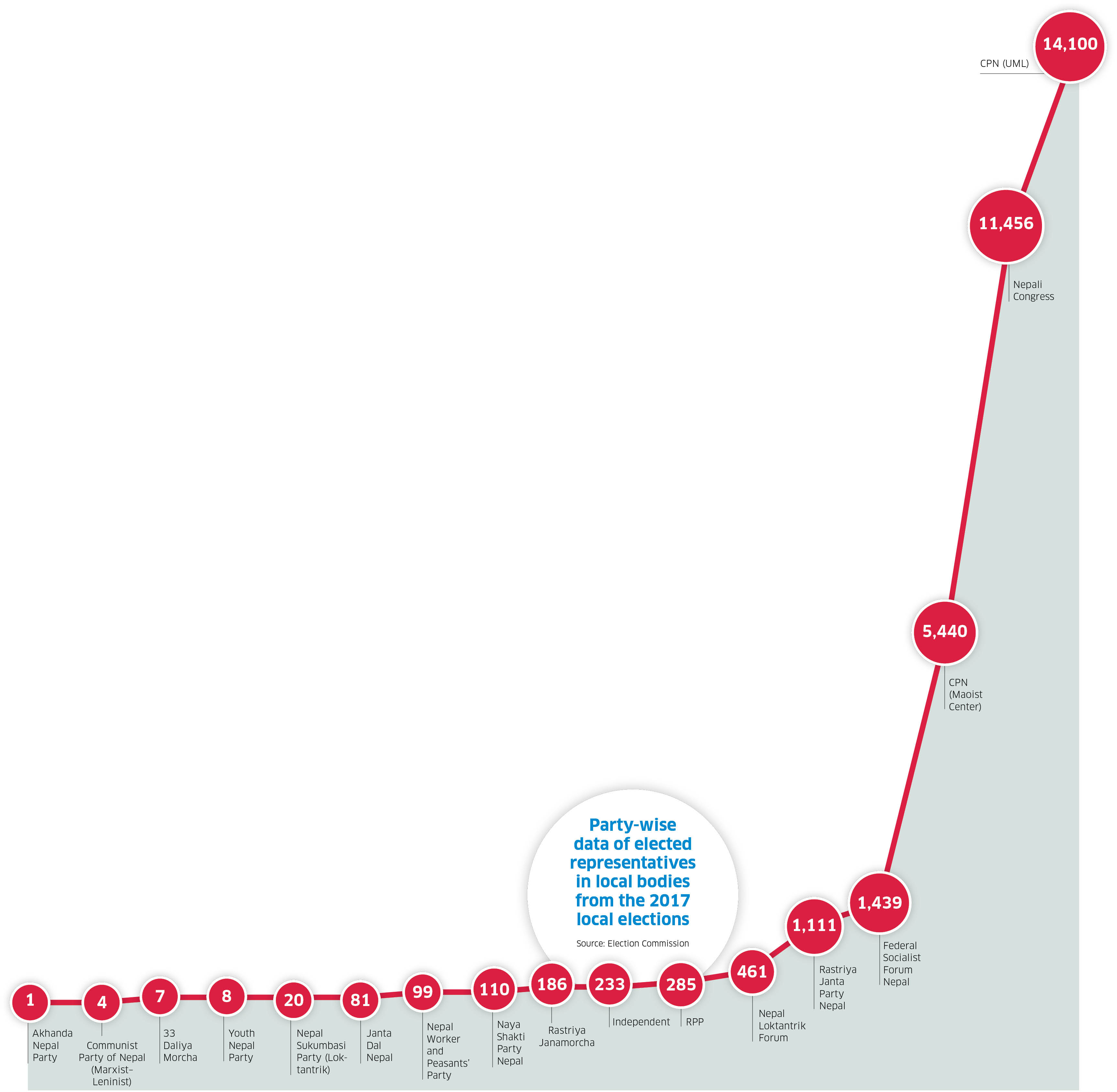As per the suggestion of the ruling coalition, the government and the Election Commission have tentatively agreed to hold local elections in one phase on May 18.
The major political parties have already started preparing. But there could be plenty of political drama before the election-day. Speculations are already rife about election outcomes and positions of major parties.
In the past five years, there has been a lot of turbulence inside major parties. In 2018, the CPN-UML and the CPN (Maoist Center) united to form the Nepal Communist Party (NCP), but the Supreme Court in March 2021 voided the merger and revived the old parties. Madhav Kumar Nepal then went on to split the UML to form CPN (Unified Socialist), becoming the fourth largest parliamentary party.
Maoist chairman Pushpa Kamal Dahal ‘Prachanda’ and CPN (Unified Socialist) leader Nepal have made it clear that they want a continuity of the ruling coalition under Nepali Congress until the elections. However, there is a strong voice within Congress that it should not ally with any of the leftist parties. The UML, meanwhile, wants to break the coalition and isolate Congress in order to retain the position of the largest party.
“As the parties have no new political agenda, the only way to win more seats is by cutting the votes of rival parties. So the smaller parties could play a vital role by splitting votes,” says Bishnu Dahal, a political analyst.

Similarly, in 2019, Baburam Bhattarai-led Naya Shakti Party and Upendra Yadav’s Federal Socialist Forum merged to form the Samajbadi Party Nepal. Then in April 2020, the party merged with the Mahanta Thakur and Rajendra Mahato-led Rastriya Janta Party Nepal to form Janta Samajbadi Party Nepal. But after little over a year of working together, the Thakur-Mahato faction broke off to form the Loktantrik Samajbadi Party Nepal. The effect of mergers and breakups in political parties is certain to reflect in poll results as well.
Bibeksheel Sajha Party remains without representation at the local level, and it plans to change that this time around. Bibeksheel Chairman Rabindra Mishra recently changed the party’s line and is now pitching for return of monarchy and referendum on Hindu state. There are rumors of Bibeksheel forming an electoral alliance with the pro-monarchy Rastriya Prajatantra Party (RPP) for local polls.
The two parties have already discussed the possibility, and the RPP’s newly elected chairman, Rajendra Lingden too seems keen on working together with like-minded forces, at least for the elections.
“This time, the parties will focus on defeating others rather than winning elections on their own strength,” Dahal says. “There is a likelihood of UML and Congress contesting alone while the remaining parties could form an electoral coalition against the Big Two, making it a three-way fight.”











